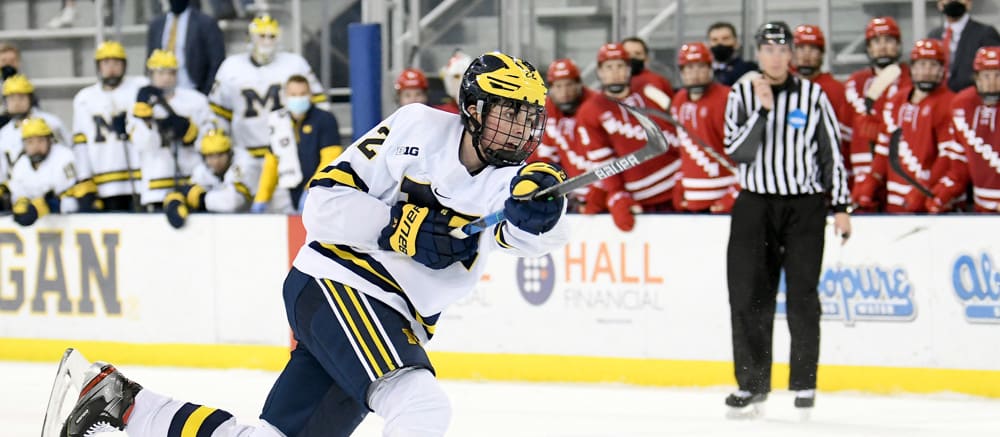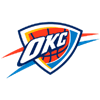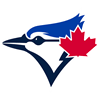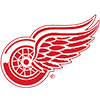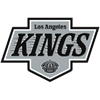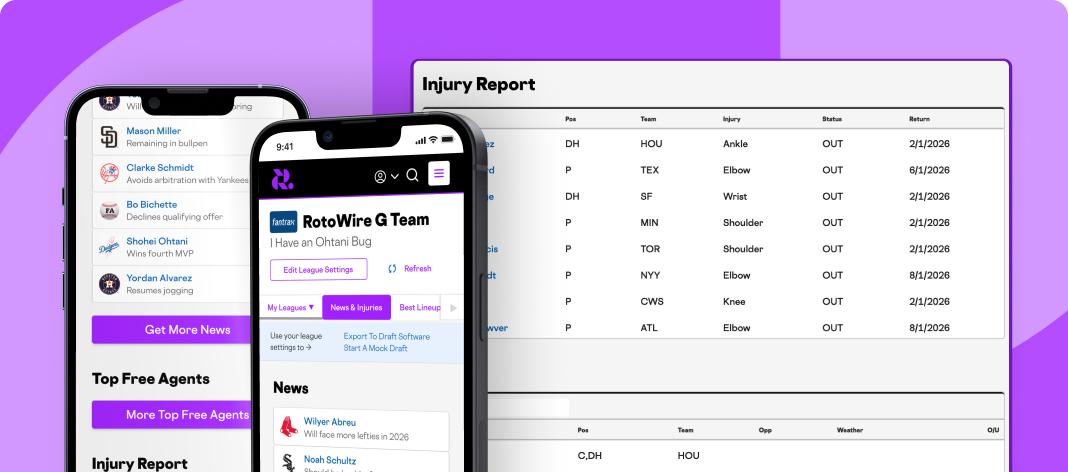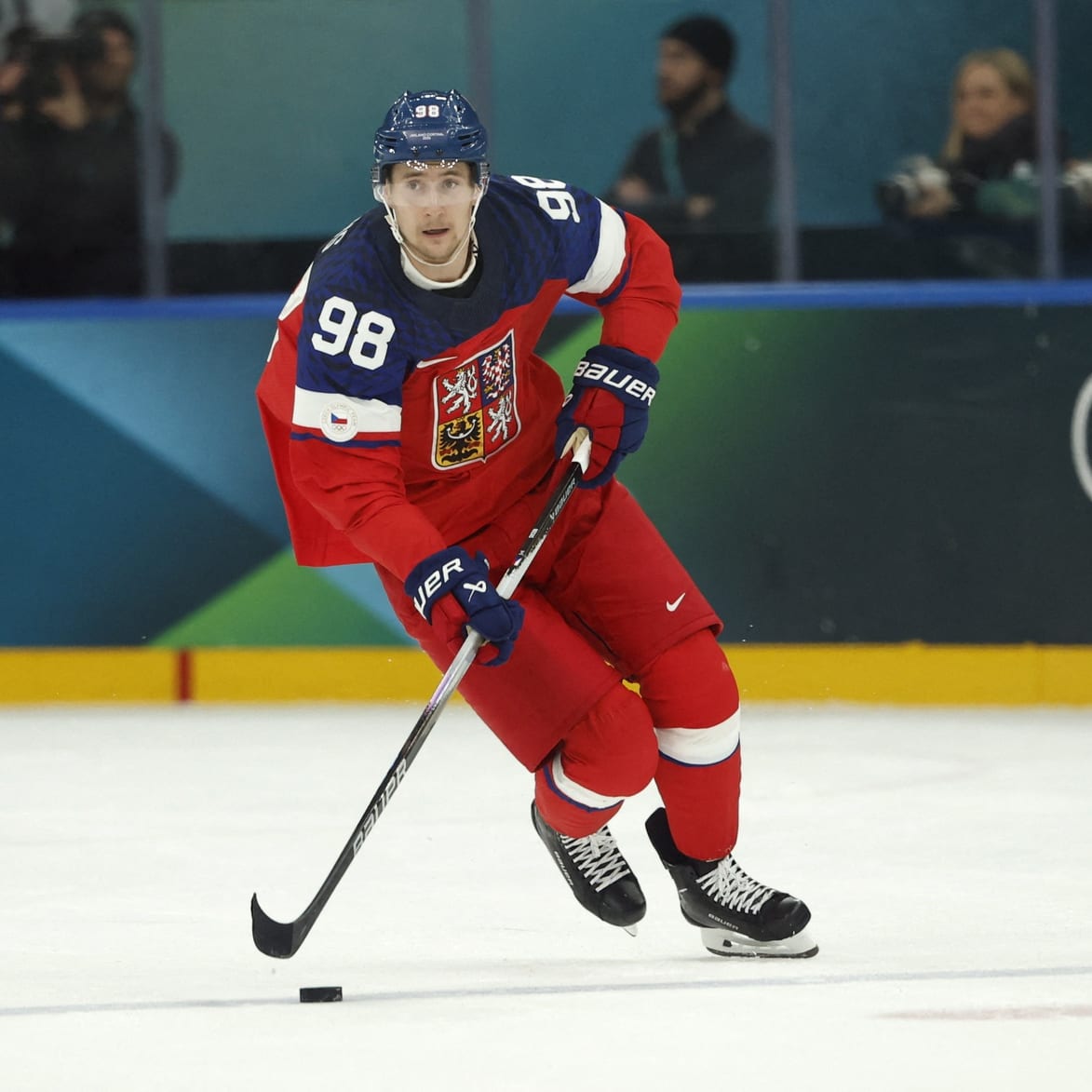This draft class has received quite a bit of flack for being one of the weakest ones in recent memory. To some extent, I agree. It lacks the franchise-altering talents we have seen selected in recent years and has very little goaltending depth overall. What it does feature is plenty of players who should have long, productive NHL careers in some form or fashion, even if they don't play at the top of a lineup.
Our annual rankings of the top 64 prospects are below.
(Note: This is NOT a mock draft, nor does it take any team needs into account)
TIER 1
1) Shane Wright (C, Kingston-OHL): I gave long and serious consideration to moving Wright from the top spot, but ultimately couldn't do so. Wright has been widely viewed as the presumptive No. 1 pick in this draft for several years. When that happens, a player's game tends to get picked apart from all angles simply because there are so many eyes on him for such a long period of time. That said, the gap between Wright and the guy behind him is closer than I would have guessed at this time a year ago. Wright is a do-it-all center who is at least solid-average in all facets of the game, with his shot being his greatest attribute. He is a lock to remain in the middle and thinks the game well enough to be an asset in the defensive zone. His ceiling is likely that of a
This draft class has received quite a bit of flack for being one of the weakest ones in recent memory. To some extent, I agree. It lacks the franchise-altering talents we have seen selected in recent years and has very little goaltending depth overall. What it does feature is plenty of players who should have long, productive NHL careers in some form or fashion, even if they don't play at the top of a lineup.
Our annual rankings of the top 64 prospects are below.
(Note: This is NOT a mock draft, nor does it take any team needs into account)
TIER 1
1) Shane Wright (C, Kingston-OHL): I gave long and serious consideration to moving Wright from the top spot, but ultimately couldn't do so. Wright has been widely viewed as the presumptive No. 1 pick in this draft for several years. When that happens, a player's game tends to get picked apart from all angles simply because there are so many eyes on him for such a long period of time. That said, the gap between Wright and the guy behind him is closer than I would have guessed at this time a year ago. Wright is a do-it-all center who is at least solid-average in all facets of the game, with his shot being his greatest attribute. He is a lock to remain in the middle and thinks the game well enough to be an asset in the defensive zone. His ceiling is likely that of a lower-end No. 1 center on a lesser team, or a very good No. 2 guy on a contender. I wish he had that one elite skill to fall back upon in the event of trouble, but the flip side is that Wright has no noticeable weaknesses in his game. Wright isn't Connor McDavid or Auston Matthews, or even Jack Eichel or Jack Hughes, but he is still a heck of a player who projects to make multiple All-Star teams over the course of his long career.
2) Juraj Slafkovsky (LW, TPS-Finland): Slafkovsky was the only other player I considered for the top spot. The NHL's decision not to send players to the recently completed Beijing Olympics resulted in Slafkovsky's stock exploding during the event. He ended up leading all players in goals (7) and points (7) while being named the tournament's most valuable player. He did it all as a 17-year-old. The Slovakian took a regular shift for TPS in Finland's Liiga this past season, posting five goals and ten points in 31 games. Despite his dominant showing at the Olympics, Slafkovsky is still mostly projection at this point. He's a legitimate 6-foot-4, with a long reach and excellent hands. He can score goals in a variety of different ways. He reads plays well, although his offense can be a bit perimeter-oriented at times. I imagine that will change over time. The upside here is significant, perhaps 30-plus goals on an annual basis, given Slafkovsky's youth and what he has already shown he is capable of. He has a considerably higher long-term ceiling than Wright.
3) Logan Cooley (C, US NTDP-USHL): It's a big draft for the United States National Team Development Program (US NTDP), with Cooley being the organization's best chance at producing a future NHL star. Cooley played his way onto Team USA's World Junior roster at the abbreviated tournament as a 17-year-old this past December and seemed primed to fill a key role for the team before COVID-19 cancelled the proceedings. It's impossible to miss Cooley if you're watching a game in which he's playing. He flies around the rink, in addition to possessing the hands and creativity to carve up opposing defenders. Cooley plays considerably bigger than his 5-foot-10, 175-pound frame would lead you to believe. What I like most about Cooley's game is the fact he finds a way to impact the game even if he isn't putting up points. There is a high floor and even higher ceiling here, probably the highest in the entire draft. Cooley is committed to the University of Minnesota.
TIER 1A
4) David Jiricek (D, Plzen-Czech): A knee injury suffered by Jiricek in what ended up being the Czech's only game at the pandemic-shortened World Juniors cost him the rest of the season, although I doubt it has any impact on where Jiricek ends up being drafted. He ended up playing 29 games for Plzen in the first half of the season (5 goals, 11 points), logging heavy minutes for a quality club against decent competition. Jiricek brings a nice combination of size and skill to the table. He's 6-foot-3 and should play at well north of 200 pounds when he finally makes it to the NHL. While Jiricek isn't a dynamic offensive player, he's a very good passer with a very accurate shot. Toss in the fact Jiricek gets some bonus points for being a right-handed shot and you have a solid, second-pairing defender who can be deployed in any situation.
5) Matthew Savoie (C, Winnipeg-WHL): Regular readers of this column for the near 20 years I have been with RotoWire are aware that I always advocate NHL clubs stock up on as much skill as they can in the draft and figure the rest out later, which is why I am such a staunch advocate of Savoie, who was denied "exceptional" status to join the CHL a year early despite being the first-overall pick in the 2019 WHL Bantam Draft. He finally made his debut for Winnipeg this past season and went on to post 35 goals and 90 points in 65 games, the latter of which led all WHL rookies. The center is an exceptional passer who looks like he could help an NHL power-play right now. His offensive reads are very strong and he's more than willing to go to the difficult areas of the ice to make a play. Savoie is undersized at about 5-foot-9 and doesn't have blazing speed, but he skates fine and thinks the game well enough to make up for any potential shortcomings in that area. Savoie looks like a high-octane offensive player who will be able to generate chances for both himself and his linemates in a variety of different ways
6) Simon Nemec (D, Nitra-Slovakia): Scouts have gotten plenty of looks at Nemec over the years. Not only has he played against men for his club team in Slovakia the past couple seasons, but he's also competed at the Olympics, World Juniors, and World Championship. Nemec has always looked exceptional when playing against kids in his own age group. His defensive reads are excellent, his skating is solid and he can jump in the play and create offense when the opportunity presents itself. The only potential knock on Nemec is that he has just average size at 6-foot-1 and about 180 pounds. He does so many things well that I have an extremely difficult time envisioning a scenario in which Nemec doesn't develop into a productive two-way NHL defender, likely sooner rather than later.
TIER 2
7) Joakim Kemell (RW, JYP-Finland): There was a clear dip in Kemell's game in the second half of the season, but that was inevitable considering how well he played in the early going. He still finished the year leading all Liiga rookies in goals scored with 15 (in 39 games). A good portion of Kemell's offensive value comes from plays he creates for himself, which is understandable considering he has an excellent shot and extremely fast hands. He's certainly more of a finisher than playmaker, but Kemell has long been a better passer than he gets credit for. His skating is somewhere around average to a tick above, depending on your viewings. Kemell is one of many players who seem likely to go in the early portion of Round 1 and project to be an above-average NHL player, but perhaps not a star.
8) Jonathan Lekkerimaki (RW, Djurgardens-SHL): Clearly too good to play for Djurgardens' junior club (20 goals, 35 points in 26 games), Lekkerimaki spent nearly the entire second half of the season playing for the big club in the SHL and had success, posting seven goals and nine points in 26 games. Lekkerimaki is an undersized (5-foot-11), highly skilled offensive player. He has a big shot and has displayed a willingness to go to the difficult areas of the ice to make a play. That said, Lekkerimaki is very much a long-term upside play. I could see a scenario in which he eventually arrives in North America and struggles for a while until he learns how to consistently create space against bigger opposing defenders. I still think the upside here is worth betting on.
9) Danila Yurov (RW, Magnitogorsk-KHL): Like many young Russians, Yurov barely played in the 21 games worth of action he saw with Magnitogorsk's KHL club. He failed to record a point during that run, but was dominant (13 goals, 36 points) in 23 games their MHL junior club. I can't help but think Yurov would be a lock for the top five if he played in the CHL. Simply put, he makes plays all over the ice and is a scout's dream. Yurov is talented enough to beat opposing defenders one-on-one andis tenacious with his play away from the puck. The upside here is quite significant, as Yurov is a legitimate two-way guy with both speed and skill to his game. I wouldn't be the least bit surprised if the Russian ends up being one of the best players selected in this year's draft.
10) Cutter Gauthier (LW, US NTDP-USHL): Gauthier is near certain to go higher than this on draft night, with the top five not completely out of the question. The appeal with Gauthier is the overall package. He's a legitimate 6-foot-3, can play both center and wing, and has a hard, heavy shot. I've always found his offensive game around the net to be basic, but not in a bad way. He is big enough to carve out space down low against opposing defenders and can shoot the puck well enough to beat goalies from far out. I think he's better suited to the wing and have ranked him as such, but I imagine the team that selects Gauthier tries him out at center until he proves he can't handle it, especially if he is taken as high as some seem to expect. Gauthier's father, Sean, played one NHL game with San Jose in 1998-99. Cutter will head to Boston College in the fall.
TIER 3
11) Conor Geekie (C, Winnipeg-WHL): The Winnipeg Ice had the best record in the WHL this past season at 53-10-5, which is understandable considering their top two centers—Geekie and Savoie—are both going to be drafted in Round 1. 6-foot-4 pivots with size and high-end skill never last long in the draft, and neither will Geekie. Not only is Geekie huge, he's also very good at using his size to his advantage considering his youth. He averaged more than a point per game this season (24 goals, 70 points in 63 games), although I admit I expected a tad more production. I would feel much better about Geekie's future projection if he was a bit better skater. He really labors getting around the rink at times, although to his credit, Conor's effort level is strong, and his constant movement helps negate some of the concerns about his lack of foot speed. For the moment, I feel better about projecting Geekie as a future secondary piece as opposed to a true top-line center.
12) Ivan Miroshnichenko (LW, Omskie Krylia-VHL): It was announced in early March that Miroshnichenko was diagnosed with "serious health problems" and may miss all of next season. Miroshnichenko's agent has since confirmed he was treated for Hodgkin's Lymphoma and is currently in remission. Obviously, his draft stock will be entirely dependent on his medicals. On ice, Miroshnichenko looks like an easy top-six forward. He has the hands, speed, and offensive skill set to play a finesse game and the size (6-foot-1, 185 pounds) and competitiveness to play a physical game. Miroshnichenko has a ridiculous shot and is one of the few players in this draft with the ability to beat opposing goaltenders consistently from distance. I can't begin to guess where Miroshnichenko will be selected, but he's a clear lottery talent.
13) Brad Lambert (C, Pelicans-Finland): For quite a while it was widely assumed that should Wright slip from the No. 1 spot in this year's draft, Lambert would be the heavy, heavy favorite to assume it. It hasn't worked out that way, to put it mildly. Simply put, for all Lambert's physical gifts, not enough got done this past season. In Lambert's defense, he played for two different teams in Finland's Liiga and appeared to be well on his way to a monster performance (five points in two games) at the World Juniors before the tournament was cancelled. At his best, Lambert is a creative puck distributor with excellent hands and arguably the best set of wheels in the entire draft. He appeared to be lacking confidence for a good portion of the season. Fellow Finn Aatu Raty went through a somewhat similar issue a year ago, though while Raty ended up going No. 52 overall to the Islanders, I don't expect Lambert to fall anywhere near that far. I would be terrified to draft him in the lottery, although the upside could easily outweigh the risk when all is said and done.
TIER 4
14) Kevin Korchinski (D, Seattle-WHL): Korchinski, a defenseman, led all WHL rookies in assists this past season with 61 in 67 games. He has plenty of size at 6-foot-2 and skates well enough to blow past opposing forwards on zone exits. Korchinski has enough offensive ability to be an asset on an NHL power-play, but his play away from the puck needs work. He has a large enough frame to make life miserable for opponents in the defensive zone. Korchinski will never be the type to log heavy, extended minutes on the penalty kill, but that's not why you're drafting him. The common comp for Korchinski is Golden Knights defenseman Shea Theodore, simply because they are both offensive-minded rearguards and both played for Seattle. There's enough upside here that I love Korchinski as a late lottery pick, but it's going to take time.
15) Frank Nazar (C, US NTDP-USHL): Nazar doesn't have as much individual skill as a good portion of the players ranked ahead of him on this list, but he makes up for it with high-level speed and an exceptional compete level. Nazar has played both center and wing in the past, but the NTDP deployed him primarily in the middle this past season. I think his game may be better suited to the wing, where he can simply fly the zone and wreak havoc on opposing defenders on the forecheck, but I expect whichever team selects him to use him as a pivot. It's difficult for a player who skates this well and works this hard not to develop into a useful NHL player in some capacity. Nazar's long-term ceiling will be determined by how much his offensive game improves. He is committed to the University of Michigan.
16) Denton Mateychuk (D, Moose Jaw-WHL): Built in the mold of the "modern" NHL defenseman, Mateychuk is an undersized (5-foot-11), fleet-footed rearguard with above-average puck skills. He defends with brain as opposed to brute strength. Mateychuk received a ton of ice time for Moose Jaw this past season and it resulted in him averaging nearly a point per game (13 goals, 64 points in 65 games). He also finished with a plus-20 rating and somehow only had 15 penalty minutes, which is mind-boggling considering it seemed as if he never left the ice some nights. A defender with the ability to easily skate the puck out of his own zone at the drop of a hat is invaluable in today's game, and while Mateychuk may never be the type to log heavy penalty-killing minutes, he still should be able to carve out a career as an offensive, second-pairing rearguard.
17) Pavel Mintyukov (D, Saginaw-OHL): Mintyukov crossed the Atlantic this season and proceeded to average nearly a point per game (17 goals, 62 points in 67 games) for Saginaw. It was quite a showing considering the Russian didn't play at all a year ago due to the COVID-19 pandemic. I love his aggressiveness, as he's seemingly always looking to make plays with both his feet and with the puck on his stick. As one would expect, mistakes come along with that, but I'd much rather a coaching staff attempt to reign in a player as opposed to the opposite. I'm not sure Mintyukov will ever be more than average in his own zone, but his mobility combined with a big shot gives him legitimate second-pairing upside down the road. I'm a fan.
18) Marco Kasper (C, Rogle-SHL): Kasper played a bunch of minutes this past season for a good Rogle team in the Swedish Hockey League, and that experience certainly served him well as NHL teams evaluated him throughout the course of the year. He has the look of a solid, all-around player who projects as more of a complementary piece offensively as opposed to a top-six point-producer. Kasper's compete level is strong, and his work ethic is universally praised—he captained his native Austria at the abbreviated World Juniors—so I wouldn't be shocked if Kasper outperformed his physical skill set and draft position. He's a really good player with a high floor who figures to go in the middle of the opening round.
19) Jiri Kulich (C, Karlovy Vary-Czech): Kulich was arguably the best player at the recently completed World U18's, leading everyone in goals (9 in 11 games) in addition to being named tournament MVP. His production in the top Czech league this past season was fine (9 goals, 14 points in 49 games) considering he played virtually the entire year at age 17. Kulich looks like a "clean" offensive prospect. I wouldn't call him elite in any single area, but it's difficult to poke holes in his game. Kulich's greatest attribute is his finishing ability around the net, and he may ultimately be better suited for the wing. He looks like a high-floor guy with the ability to fill a variety of different roles at the NHL level. I'd be surprised if Kulich wasn't a first-round pick at this point. He was that good at the World U18's.
20) Isaac Howard (LW, US NTDP-USHL): Any club looking for high-end skill will be immediately drawn to Howard, who was the most dangerous forward on the US NTDP roster many nights this past season. He possesses offensive creativity that few players in the draft can match. The upside is obvious, but there are some red flags here as well. Howard isn't big at just 5-foot-10, and while his skating is average, he doesn't possess the breakaway speed most scouts look for in a smaller player. He's strictly limited to the wing, and it's fair to wonder how much he'll help an NHL club if he isn't putting up points. There isn't a huge margin for error here, leaving Howard—who is committed to Minnesota-Duluth—as a high risk/high reward option in the mid-to-late stages of Round 1.
21) Filip Mesar (RW, Poprad-Slovakia): If you're looking for a player with high-end speed who plays with all kinds of pace, Mesar is your guy. He has played professionally in his native Slovakia the past two seasons, posting 12 goals and 30 points in 73 games. The concern is whether Mesar's game will translate to the NHL level. He's 5-foot-10 and barely 170 pounds, and I wouldn't call him a dynamic offensive player other than the fact he skates really well. He's going to have to find a way to consistently weave through the neutral zone without getting eaten alive by bigger opposing defenders. All players taken at this stage of the draft are a huge crap shoot, but there is no doubt Mesar brings top-notch speed to the table, even for the NHL level. I imagine some team will fall in love with that and then hope he can refine the rest of his game as he continues to develop.
TIER 5
22) Liam Ohgren (LW, Djurgardens-SHL): By far the best player in the Swedish U20 junior league this past season, Ohgren led all players in goals (33), points (58), and plus/minus (plus-41). His stint with Djurgardens senior team was less impressive, as he managed just a single goal and assist in a limited 25-game run. Ohgren is a cerebral offensive player. He slows plays down and does an excellent job of finding open teammates. I wouldn't call him a dynamic offensive talent and there are questions about his skating, but Ohgren possesses a complete game. He projects as a high-floor long-term option with somewhat limited upside.
23) Rutger McGroarty (F, US NTDP-USHL): Like a handful of players expected to go in Round 1, McGroarty's evaluation ultimately comes down to whether NHL clubs feel he skates well enough and plays with enough pace to secure a top-six forward role down the line. His stride looks awkward at times, but he also tends to get where he needs to go in time to make a play. Other than so-so foot speed, McGroarty is a terrific all-around player. He can bury the looks presented to him and works hard in the offensive zone to create chances for his linemates. McGroarty best projects as a solid, two-way third-liner who can move up in the lineup if injuries strike. He is off to the University of Michigan in the fall.
24) Noah Ostlund (C, Djurgarden Jr-Sweden): Ostlund is a clear first-round talent, but there are reasonable concerns regarding whether his game will translate to the highest levels of North American hockey. Ostlund can really move and possess a tremendous amount of individual skill. He can stickhandle around opposing defenders and is an excellent passer, but his game is perimeter-oriented, and he lacks the size and strength at about 5-foot-10 and 165 pounds to impact a game from close quarters. I believe the skill and speed combination is worth betting on late in Round 1 but wouldn't be totally shocked if Ostlund falls to Round 2.
25) Lian Bichsel (D, Leksand-SHL): A native of Switzerland, Bichsel was so good with Leksand's junior club that he spent most of the season with their main team in the SHL. His offensive numbers (1 goal, 3 points, minus-6 in 29 games) were underwhelming, but Bichsel's value comes in the form of a towering (6-foot-5, 215 pounds), physical, stay-at-home defender. I question Bichsel's puck skills somewhat and I can't imagine he'll ever be the type to create much offense at the NHL level, but his skating is perfectly fine for a kid his size and it's easy to envision Bichsel playing 20 minutes per night and killing penalties for an NHL club in a few years' time.
26) Jimmy Snuggerud (RW, US NTDP-USHL): Snuggerud's stock improved this past season, as he was given a substantial role for the NTDP and responded with a strong showing. 6-foot-2 with a big shot, Snuggerud makes for an ideal one-time option with the man advantage. The rest of Snuggerud's offensive game is basic, but he works hard to keep plays alive down low and is responsible defensively for a kid who turned just 18 years of age this past June. Snuggerud has the look of a high-end third-liner who can help his team in all three zones while also producing on the power-play. He's off to the University of Minnesota.
TIER 6
27) Owen Pickering (D, Swift Current-WHL): Pickering has come a long way in a short period of time. He was a ninth-round pick (177th overall) in the 2019 WHL Bantam Draft and just three years later is a fringe first rounder for the NHL Draft. In his first full WHL campaign, Pickering posted nine goals and 33 points in 62 games. He was also a minus-29 for a Swift Current team which finished minus-65 in goal differential. Pickering's offensive game is basic in terms of puck skills, but he can really skate and is plenty big enough at 6-foot-4 and about 180 pounds. If he can continue to improve at the rate we saw this past year, he will be a steal for whomever selects him, likely late in Round 1. If Pickering's play levels off, he's probably a third-pairing guy.
28) Jagger Firkus (RW, Moose Jaw-WHL): The most difficult thing to do at the NHL level consistently is score goals, and that's Firkus' greatest attribute. He had 36 in 66 games this past season before adding six more in 10 playoff contests. His shot is excellent, as you would expect, but he also plays hard and does a nice job of eluding opposing defenders despite checking in at 5-foot-10, 155 pounds. 15 years ago, Firkus would have been at risk of being swallowed up by large opposing rearguards on a consistent basis, but with the way the game is called today I think he has a chance to make it. Players with this type of goal-scoring ability are rarely available at the stage of the draft in which Firkus' is expected to be selected.
29) Jack Hughes (C, Northeastern-NCAA): Hughes had an up-and-down freshman season at Northeastern, though he filled a key role for the Huskies all season long as the youngest player in college hockey. His offensive numbers were fine (7 goals, 16 points in 39 games) given his youth and inexperience for the level. An underrated playmaker with above-average hands, Hughes has the look of a future middle-six center who should fit in with any NHL club in a supporting role. Hughes—whose father Kent is the general manager of the Montreal Canadiens and whose brother Riley was a seventh-round pick for the Rangers in 2018—is a fringe first-rounder as is and I can't help but think he would have been a lock for the latter stages of Round 1 had he been playing in the CHL as opposed to Hockey East.
30) Lane Hutson (D, US NTDP-USHL): There is zero question that Hutson, who was named top defenseman at the World U18s, possesses NHL-caliber traits. His hockey IQ is exceptional, as is his ability to generate offense and read plays in all three zones. Hutson has the exact type of skill set that I love to bet on, but it's extremely rare, if not unprecedented to see a 5-foot-8, 150-pound defender play in the league without issue. Hutson's brain—which is elite—is going to have to make up for a lack of size and mediocre set of wheels. Hutson's scouting report sounds a lot like Adam Fox at a young age, although Fox is a right-handed shot and is considerably bulkier than Hutson. The hope is that Hutson, who is committed to Boston University, can somehow get to 165 pounds or so without losing any of his trademark elusiveness.
31) Seamus Casey (D, US NTDP-USHL): Casey figures to be a fringe first-rounder on draft night, although I would be surprised at this point if he goes that high. His backers will point to his excellent speed and hockey sense, while his detractors will call him a defender who lacks elite skill at 5-foot-10, 160 pounds. Casey's game lacks physicality—which isn't a surprise given his lack of size—although his compete level is fine. He does a nice job of picking up pucks in his own zone and seamlessly moving them ahead to his teammates. Casey doesn't project as a traditional power-play quarterback, so he's going to have to find a way to provide some value at even-strength to make it. It's going to be a process. The rare prospect born and raised in Florida, Casey is off to the University of Michigan.
32) Mattias Havelid (D, Linkoping-SHL): Long a personal favorite of mine, Havelid's father Niclas played 628 games in the NHL, mostly with Anaheim and Atlanta. Mattias is a silky-smooth defender with excellent speed. He excels at joining the rush to create scoring chances and is competent in his own zone despite standing 5-foot-9 and about 165 pounds. While Havelid's game is certainly offensively slanted, he has displayed the ability to get out of his own zone without issue thus far. He played 23 SHL games this past season and didn't score a point, but I have zero concerns about his ability to generate offense. There's no reason Havelid shouldn't be able to develop into a middle-pairing defender if his defensive play holds up consistently at higher levels.
THE NEXT 32
33) Ryan Chesley (D, US NTDP-USHL)
34) Luca Del Bel Belluz (C, Mississauga-OHL)
35) Owen Beck (C, Mississauga-OHL)
36) Tristan Luneau (D, Gatineau-QMJHL)
37) Nathan Gaucher (C, Quebec-QMJHL)
38) Ty Nelson (D, North Bay-OHL)
39) Reid Schaefer (LW, Seattle-WHL)
40) Filip Bystedt (C, Linkoping Jr-Sweden)
41) Danny Zhilkin (C, Guelph-OHL)
42) Adam Sykora (LW, Nitra-Slovakia)
43) Sam Rinzel (D, Chaska - US High School)
44) Rieger Lorenz (C, Okotoks-AJHL)
45) Mats Lindgren (D, Kamloops-WHL)
46) Julian Lutz (LW, Munich-DEL)
47) Jani Nyman (RW, Koove Jr-Finland)
48) Simon Forsmark (D, Orebro-SHL)
49) Alexander Perevalov (LW, Yaroslav-MHL)
50) David Goyette (C, Sudbury-OHL)
51) Calle Odelius (D, Djurgardens Jr-Sweden)
52) Gleb Trikozov (RW, Omsk-MHL)
53) Elias Salomonsson (D, Skelleftea-SHL)
54) Adam Ingram (LW, Youngstown-USHL)
55) Devin Kaplan (RW, US NTDP-USHL)
56) Matthew Poitras (C, Guelph-OHL)
57) Matyas Sapovaliv (C, Saginaw-OHL)
58) Artyom Duda (D, Krasnaya-MHL)
59) Tomas Hamara (D, Tappara-Liiga)
60) Maveric Lamoureux (D, Drummondville-QMJHL)
61) Bryce McConnell-Barker (C, Sault Ste. Marie-OHL)
62) Paul Ludwinski (C, Kingston-OHL)
63) Noah Warren (D, Gatineau-QMJHL)
64) Otto Salin (D, HIFK Jr-Finland)
JUST MISSED
Jordan Dumais (RW, Halifax-QMJHL)
Nick Moldenhauer (RW, Chicago-USHL)
Viktor Neuchev (LW, Yekaterinburg-MHL)
Cruz Lucius (RW, US NTDP-USHL)
Vinzenz Rohrer (C, Ottawa-OHL)
